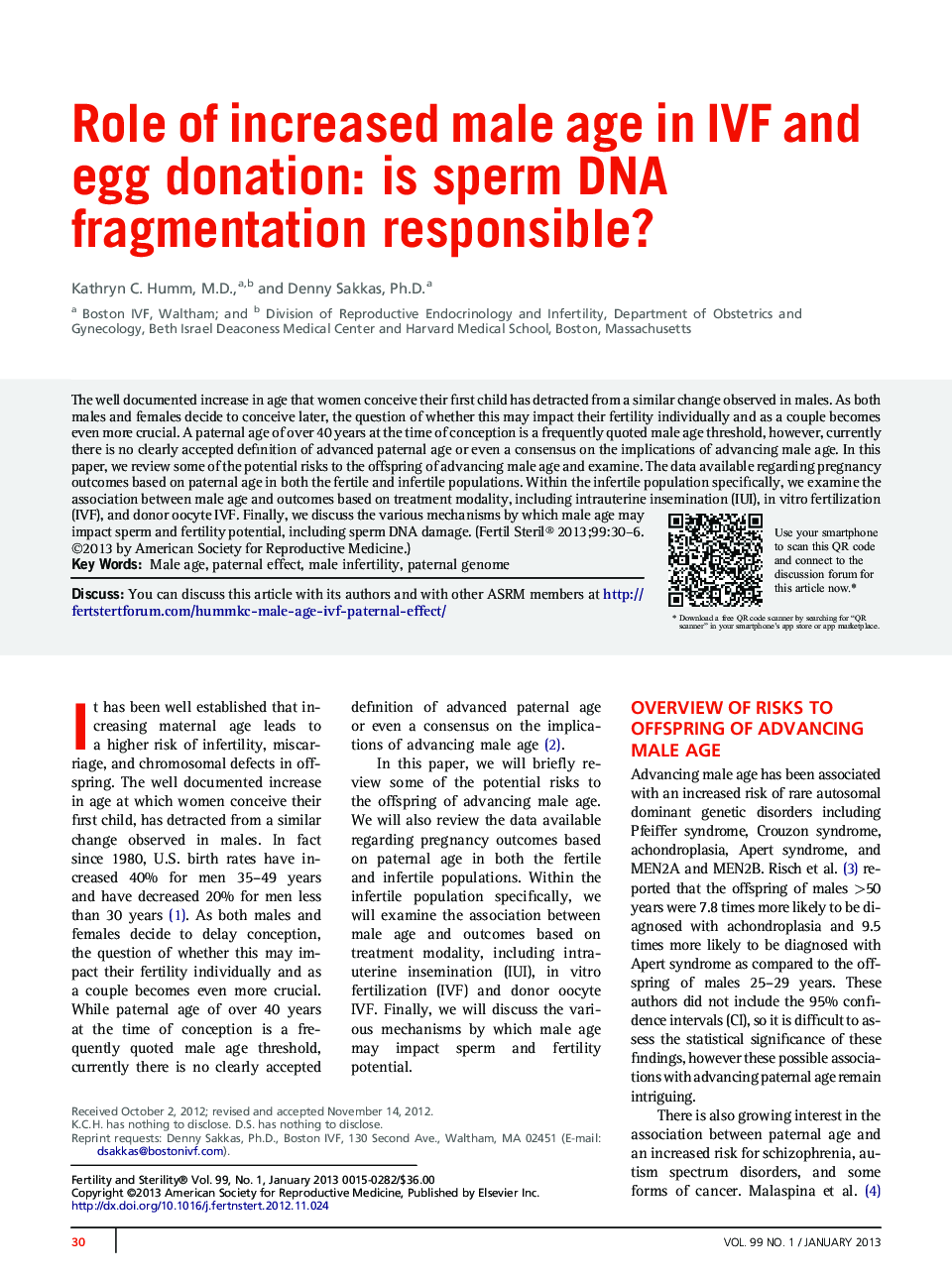| Article ID | Journal | Published Year | Pages | File Type |
|---|---|---|---|---|
| 6179233 | Fertility and Sterility | 2013 | 7 Pages |
Abstract
The well documented increase in age that women conceive their first child has detracted from a similar change observed in males. As both males and females decide to conceive later, the question of whether this may impact their fertility individually and as a couple becomes even more crucial. A paternal age of over 40 years at the time of conception is a frequently quoted male age threshold, however, currently there is no clearly accepted definition of advanced paternal age or even a consensus on the implications of advancing male age. In this paper, we review some of the potential risks to the offspring of advancing male age and examine. The data available regarding pregnancy outcomes based on paternal age in both the fertile and infertile populations. Within the infertile population specifically, we examine the association between male age and outcomes based on treatment modality, including intrauterine insemination (IUI), in vitro fertilization (IVF), and donor oocyte IVF. Finally, we discuss the various mechanisms by which male age may impact sperm and fertility potential, including sperm DNA damage.
Related Topics
Health Sciences
Medicine and Dentistry
Obstetrics, Gynecology and Women's Health
Authors
Kathryn C. M.D., Denny Ph.D.,
